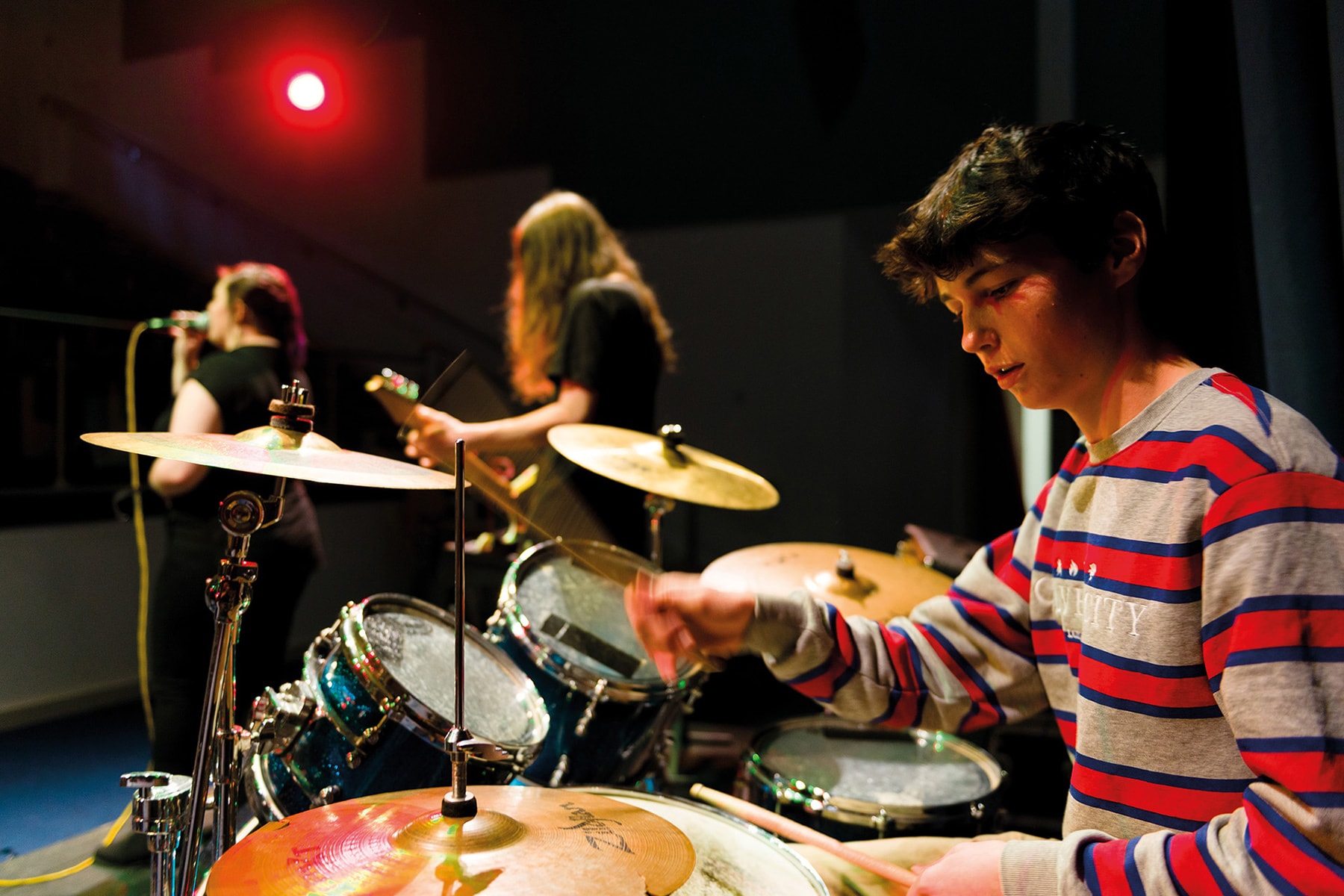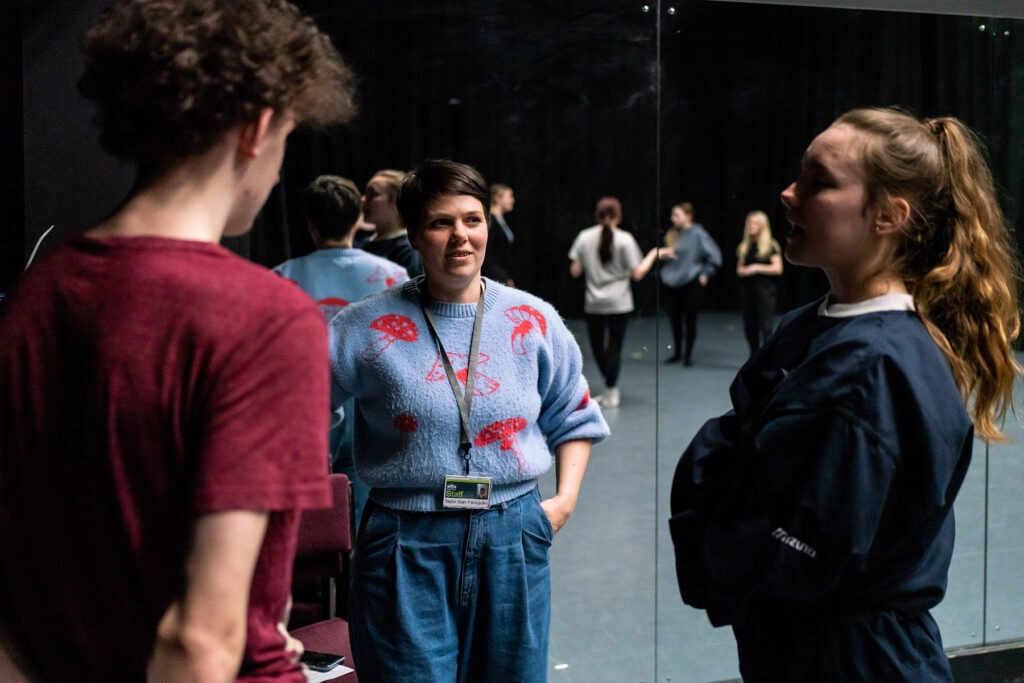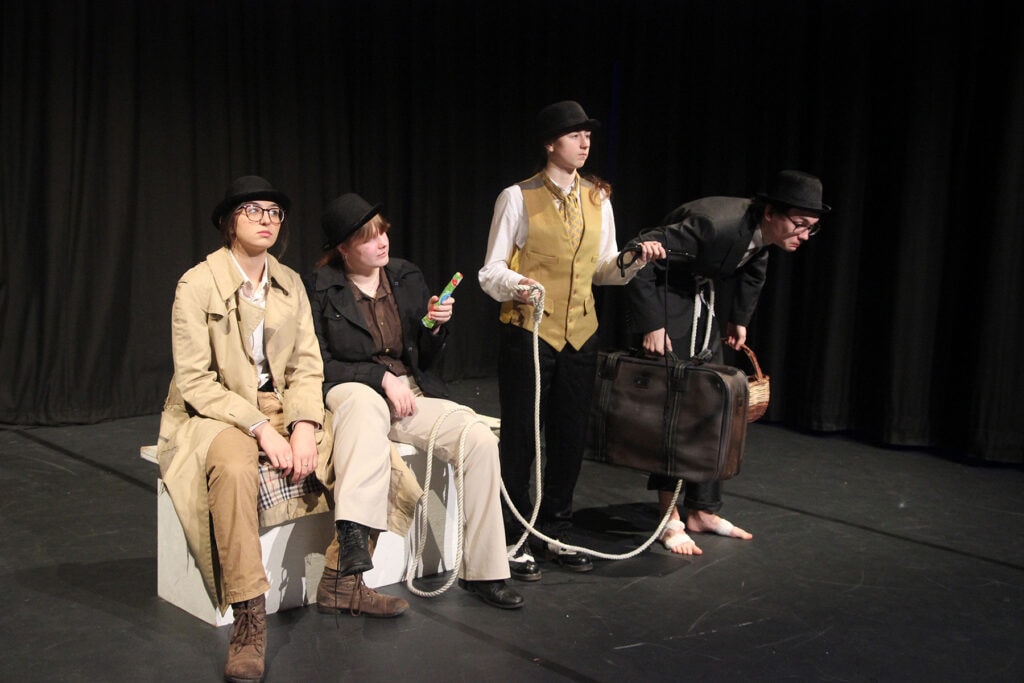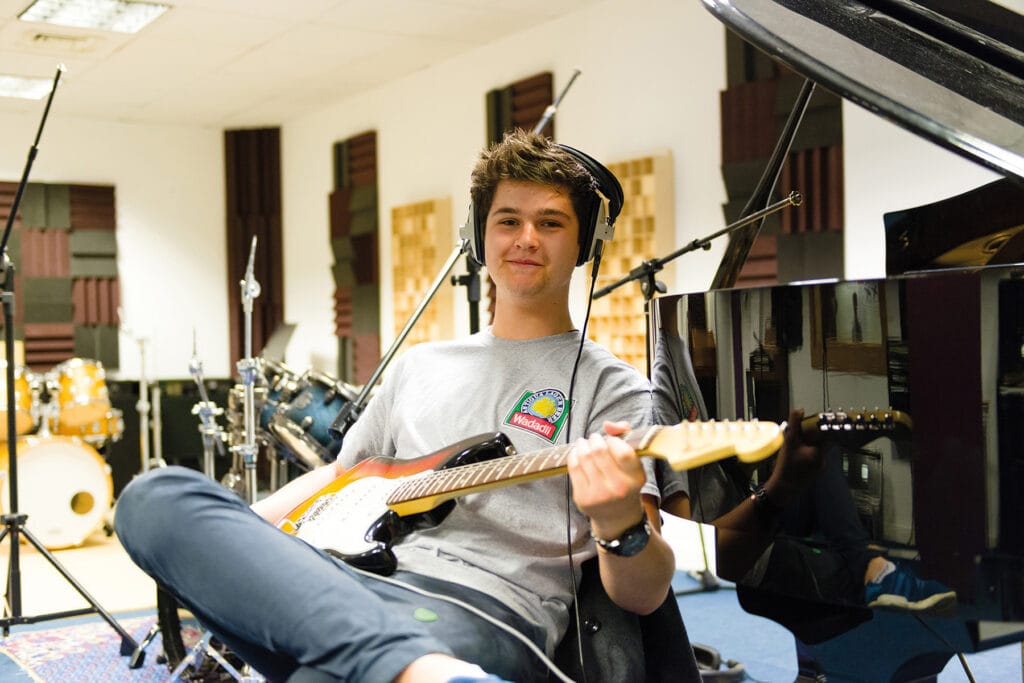Why Choose This Course?
This course is at an advanced level and covers many aspects of musicianship. You will further your understanding of the music industry and have an opportunity to apply learning in a practical and realistic way. You will gain confidence by developing your skills as a musician and will learn how to perform a wide range of musical styles and genres. Working with peers, you will develop a set of songs that span popular music from the 1960s through to the present day. You will learn to organise and market your own gigs with the aim of getting your ensemble heard. You will also learn about the variety and stylistic elements of popular music.
Discussing and performing these stylistic characteristics is essential to any aspiring musician and will be used on a regular basis. This will include listening to iconic albums and identifying why it was so prolific. You will need to comment critically on the development of the musical elements, format and technological/production changes, making links between the factors, giving a comprehensive picture of how pop music has evolved. The notion of ‘evolution’ is fundamentally important and development should be plotted in terms of the stylistic, musical and technological factors.
Apply for this course
Start date: 08/09/2025
Top Course Highlights
Small Classes
Experienced Tutors
Industry-Standard Facilities
Modern Equipment
Industry Links
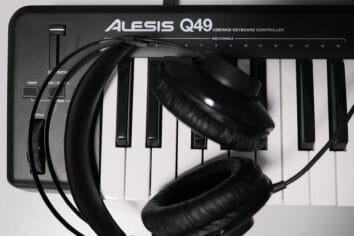
Learn from sector experts
You will be taught by staff with extensive experience who will advance your knowledge and skills to meet the expectations of the music industry.
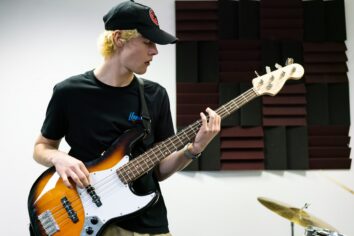
Develop solo and ensemble performance skills
You will develop personal and work-related skills which will help prepare you for employment after you have completed your training in College.
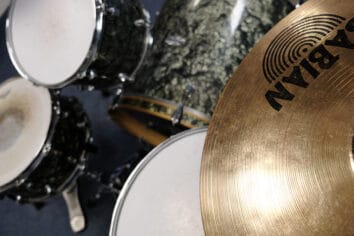
Enjoy professional surroundings
Our purpose-built practice rooms are kitted out with the latest industry-standard equipment and resources. We also enjoy partnerships with music promotors and festival organisers.
What Will I Learn?
Throughout the year you will perform three performances in front of an audience, and in the Solo Music Performance module you will learn three pieces on your instrument. A ten-week practice diary explaining your routines and improvements will accompany these pieces. This part of the course is required in order to develop a discipline for your instrument as well as a structured practice routine in furthering your performance skills. In the Practical Music Theory & Harmony module the aim is to allow you to understand and recognize intervals, cadences and rhythms. Any aspiring musician needs a comprehensive understanding of how to hear these aspects of music quickly and use them in developing it for themselves and other musicians. This assignment will be assessed through three separate aural tests.
In your second year you will discover how to organise and arrange your own live music events, ensuring fellow musicians have equal roles and fulfil them in providing a successful performance. Roles will include designing and distributing posters around your venue as well as social media, booking and hiring of venues, organising equipment, and so on. These performances will be in a venue chosen by yourself and can be anywhere around Truro or beyond. Your final major project will be assessed on performing; an interesting and varied set of music will be crucial. The aim of the Ensemble Performance assignment is to widen your ensemble skills. This is done through regular sessions, developing knowledge in organizing an appropriate set for a musical event. You will ensure that your parts have been learnt whilst listening and critically feeding back to your ensemble with any amendments that you think will improve the overall sound. As a group you will also delegate roles and regularly discuss aims and objectives, which will contribute to a performance.
Throughout the year you will perform three performances in front of an audience, and in the Solo Music Performance module you will learn three pieces on your instrument. A ten-week practice diary explaining your routines and improvements will accompany these pieces. This part of the course is required in order to develop a discipline for your instrument as well as a structured practice routine in furthering your performance skills. In the Practical Music Theory & Harmony module the aim is to allow you to understand and recognize intervals, cadences and rhythms. Any aspiring musician needs a comprehensive understanding of how to hear these aspects of music quickly and use them in developing it for themselves and other musicians. This assignment will be assessed through three separate aural tests.
Where Will It Take Me?
Students who successfully complete the assessment for the Award will have a qualification equal to an A Level. Together with other A Levels, this course provides suitable UCAS points for progression to Higher Education. The qualification will strengthen the performance aspect of a student’s A Level music study.
Assessment Arrangements
- Your achievement in this subject is dependent upon excellent attendance, punctuality and effort.
- You will learn in a friendly atmosphere, using a variety of assessment methods.
- You will be assessed regularly on classroom performances and feedback given to the ensemble.
- Discussions are a vital part of our assessment process and you will be expected to contribute.
- You will review your own solo and group performances with your tutor.
- You will undertake mock performances on each assignment in advance of your final performance.
- Your final group performance in May/June will be videoed and externally assessed by Pearson.
Entry Requirements
Five GCSEs at Grade 4 or above in appropriate subjects, including English Language/Literature or a Humanities subject at Grade 5, and/or mathematics at Grade 5, and two years’ of experience of learning and performing on one or more of the following instruments:
- Guitar
- Drums
- Saxophone or other wind instrument
- Keyboards
- Voice
- Bass
- Percussion
Information & Support
We encourage all students to practice their chosen instruments regularly and to arrange music to suit their ensemble.
Awarding Body: Pearson BTEC
Contacts: thomasq@truro-penwith.ac.uk
Meet the staff, tour the campus and find out about life as a student at one of the best colleges in the country.
